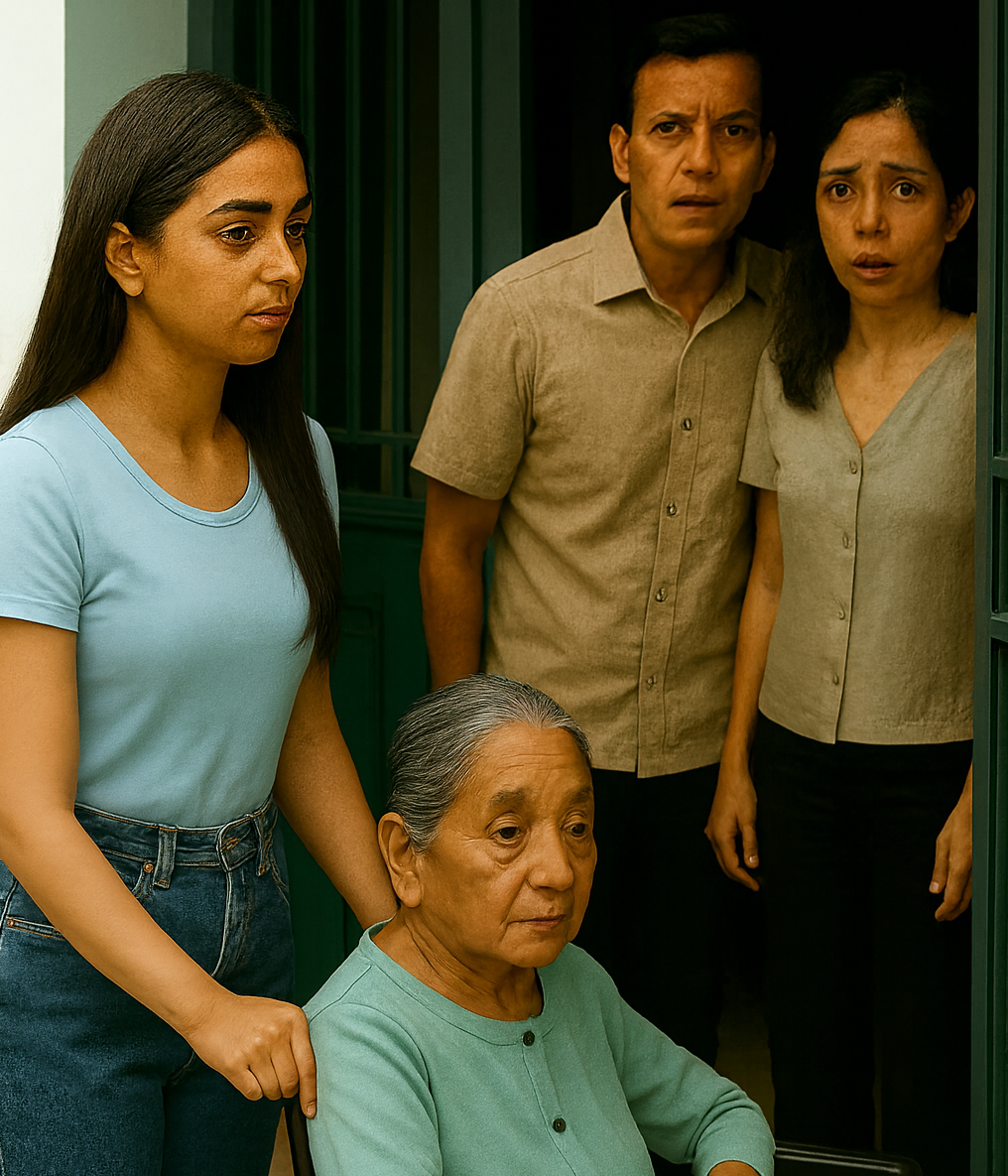Miguel and I had shared seven years of marriage. From the moment we exchanged vows, I accepted the responsibility to live with and care for my mother-in-law, Doña Carmen. She had suffered a stroke resulting in paralysis on her left side, requiring continuous assistance for every meal and rest. Initially, I believed this duty was straightforward: as her daughter-in-law, looking after her was simply expected.
The true challenge unfolded as this burden lingered, made all the heavier by the absence of the one who should have helped—my husband, Miguel.
During the day, Miguel was at work, and by night, his attention was consumed by his phone. Often, he confessed, “You care for Mom better than I ever could. If I intervene, it only makes her worse.” I never held resentment toward him for this.
That was the life I assumed: the wife manages the household while the husband provides financially. However, my world shifted when I discovered Miguel was not merely dedicated to work—he was involved with another woman.
One ordinary day, I accidentally saw a message that read, “I’ll come over again tonight. Being with you beats being at home a thousand times over.” I neither screamed nor shed tears; I refrained from drama.
With quiet resolve, I asked, “And what of your mother, the woman you’ve neglected for years?” Miguel uttered no reply. By morning, he had moved out. I was well aware of his destination.
Turning my gaze to Doña Carmen—the same woman who once criticized every bite I took and scolded my rest, saying I was “unworthy as her daughter-in-law”—my throat tightened. The urge to abandon everything swept over me, but I recalled: dignity must always be preserved.
- I contacted Miguel a week later, asking, “Are you available? I will bring your mother so you can care for her.”
- Gathered her medications, medical files, and an old health journal, I packed them carefully.
- That night, I softly wheeled her to Miguel’s apartment, suggesting a short change of scene to lift her spirits.
Upon ringing the doorbell, Miguel answered, accompanied by the other woman dressed in a silk nightgown with vibrant lipstick. I carefully placed Doña Carmen in the living room, tidying blankets and pillows, and set her medication bag nearby.
The apartment was permeated with heavy perfume yet felt notably cold and quiet. Miguel stuttered, “What… what is this?”
I met his gaze with a gentle smile. “Remember, she is your mother. I am only your daughter-in-law. Caring for her for seven years was my responsibility—that’s sufficient.” The woman behind him paled, still clutching a spoonful of untouched yogurt.
Calmly stepping aside as if fulfilling a long-held intent, I continued, “Here are her health records, prescriptions, diapers, pads, and ointment for her sores. All dosages are detailed in the notebook.”
I placed the notebook on the table and began to walk away. Miguel’s voice rose with emotion. “Are you abandoning my mother? That’s heartless!”
“Neglecting her for seven years—that was the real cruelty. I cared for her as family, not for you, but because she is a mother. Now I am stepping away, not out of revenge but because I’ve fulfilled my duty as a human being,” I replied softly without looking back.
Turning toward the other woman, I smiled softly and said, “If you love him, love him completely. That includes the entirety of his life.”
Then, I laid the property deed down. “The house is solely under my name. I’m not claiming anything. Miguel only took her clothes. However, should expenses for Mom’s care arise, I will continue contributing.”
Leaning down, I caressed Doña Carmen’s hair one final time. “Mom, be good here. If you feel lonely, I will return to visit.”
She smiled, her voice quivering, “Yes… come see me when you return.”
Closing the door behind me, I left the scented yet silent room. That night, I slept peacefully without disturbance. The following morning, I arose early, took my son to breakfast, and embraced a new chapter in life—free from tears and resentment.
In conclusion, this story highlights the strength found in maintaining dignity amidst betrayal, the importance of fulfilling familial duties with compassion, and the courage to create new beginnings despite adversity.
